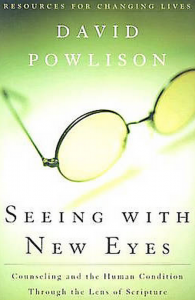John Newton wrote the below to a friend in tough times; it’s beautifully put.

Your sister is much upon my mind. Her illness grieves me; were it in my power, I would quickly remove it. The Lord can, and I hope will, when it has answered the end for which He sent it. I trust He has brought her to us for good, and that she is chastised by Him that she may not be condemned with the world. I hope, though she says little, she lifts up her heart to Him for a blessing. I wish you may be enabled to leave her and yourself, and all your concerns, in His hands. He has a sovereign right to do with us as He pleases; and if we consider what we are, surely we shall confess we have no reason to complain; and to those who seek Him, His sovereignty is exercised in a way of grace. All shall work together for good; everything is needful that He sends; nothing can be needful that He withholds. Be content to bear the cross; others have borne it before you. You have need of patience; and if you ask, the Lord will give it: but there can be no settled peace till our will is in a measure subdued. Hide yourself under the shadow of His wings; rely upon His care and power; look upon Him as a physician who has graciously undertaken to heal your soul of the worst of sicknesses, sin. Yield to His prescriptions, and fight against every thought that would represent it as desirable to be permitted to choose for yourself. When you cannot see your way, be satisfied that He is your leader. When your spirit is overwhelmed within you, He knows your path; He will not leave you to sink. He has appointed seasons of refreshment, and you shall find He does not forget you. Above all, keep close to the throne of grace. If we seem to get no good by attempting to draw near Him we may be sure we shall get none by keeping away from Him.



